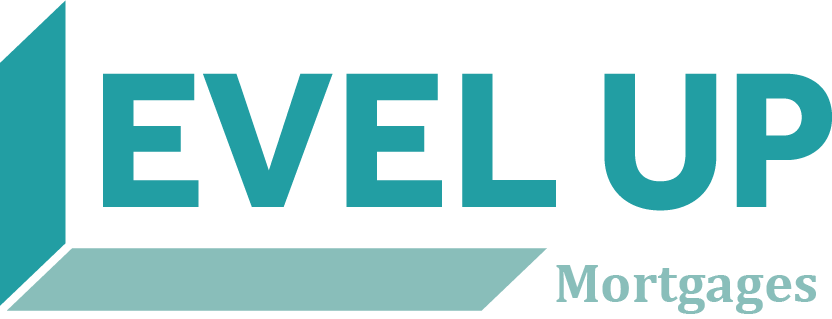Essential Mortgage Terminology for Self-Employed Borrowers
Essential Mortgage Terminology for Self-Employed Borrowers
In this detailed guide, we'll break down the jargon and demystify complex mortgage terms specifically relevant to self-employed individuals.
Navigating the self-employed mortgage process as a first-time homebuyer or seasoned property owner can seem daunting due to the unfamiliar terminology involved. At Level Up Mortgages, we understand the importance of feeling confident and well-informed when venturing into the world of mortgages. To empower self-employed borrowers with the knowledge they need, we've compiled a comprehensive glossary outlining essential terms that are crucial to understand throughout your mortgage journey.
In this detailed guide, we'll break down the jargon and demystify complex mortgage terms specifically relevant to self-employed individuals. Enhancing your understanding of these terms will enable you to confidently engage in conversations with lenders, make well-informed decisions, and secure the best mortgage solutions tailored to your unique needs. Let's dive into exploring key mortgage terminology, equipping you with the knowledge required to successfully navigate the self-employed mortgage landscape.
1. Stated Income Mortgage
A stated income mortgage is a type of mortgage tailored for self-employed borrowers or those with non-traditional income sources. Applicants may provide less income documentation compared to traditional mortgages, and lenders rely on the borrower's stated income to assess their creditworthiness. Borrowers are required to demonstrate the financial capability to repay the loan through bank statements, Notice of Assessments, or business financial statements.
2. Notice of Assessment (NOA)
A Notice of Assessment is a document issued by the Canada Revenue Agency (CRA) after they assess an individual's income tax returns. The NOA includes vital information like taxable income, total taxes owed or refunded, and contribution limits for retirement savings plans. Lenders typically require two years of NOAs to verify the income of self-employed borrowers.
3. Business-for-Self (BFS) Mortgage
A Business-for-Self Mortgage is designed for self-employed individuals, partnerships, or corporations who are unable to provide sufficient income documentation or standard employment verification. BFS mortgages accept alternative income verification methods such as financial statements, bank deposits, or invoices and typically require a more substantial down payment or higher interest rates due to the perceived increase in risk.
4. Add-Backs
Add-backs are non-cash expenses like depreciation or amortization that a lender may add back to a self-employed borrower's taxable income to boost their qualifying income. Other examples of add-backs may include deductions for business use of home expenses or automobile expenses. Lenders use these add-backs as a means of compensating for self-employed borrowers' unique financial situation and improving their overall eligibility for a mortgage.
5. Alternative Lenders
Alternative lenders offer non-traditional mortgage solutions for those who face challenges when seeking financing through conventional channels. Self-employed borrowers with inconsistent income or less-than-perfect credit scores may find alternative lenders more accommodating to their needs. These lenders typically charge higher interest rates and require larger down payments to counterbalance the perceived increase in risk associated with self-employed mortgages.
6. Loan-to-Value Ratio (LTV)
The Loan-to-Value ratio is a critical lending factor representing the percentage of the property value being financed by a mortgage loan. LTV is calculated by dividing the mortgage amount by the appraised value of the property. Self-employed borrowers who can demonstrate strong financial profiles may qualify for higher LTVs, resulting in smaller down payments and more flexible mortgage terms.
7. Mortgage Pre-Approval
Mortgage pre-approval is the preliminary evaluation of a borrower's creditworthiness and financial standing to determine their eligibility for a mortgage. The pre-approval process typically generates a written commitment from the lender, including the maximum loan amount, estimated interest rate, and mortgage terms. Securing pre-approval can provide self-employed borrowers increased negotiation power and confidence when searching for a suitable property.
8. Debt Service Ratios
Debt service ratios are essential measurements lenders use to assess a borrower's ability to manage monthly mortgage payments considering their current debt obligations. Self-employed borrowers should be aware of two critical debt service ratios when applying for a mortgage:
Gross Debt Service (GDS) Ratio: The percentage of a borrower's gross monthly income required to cover monthly housing costs, including mortgage principal and interest, property taxes, heating expenses, and half of condominium fees.
Total Debt Service (TDS) Ratio: The percentage of a borrower's gross monthly income required to cover all monthly debt obligations, including housing costs (as calculated in GDS), credit card payments, loan payments, and any other debt payments.
9. Mortgage Renewal
Mortgage renewal refers to the process of renegotiating the terms and conditions of an existing mortgage once the current term expires. Self-employed borrowers should be prepared to provide updated income documentation and financial statements for lenders when renewing their mortgage. Shopping around and consulting with a mortgage broker can help self-employed borrowers find the most favourable mortgage rates and terms during renewal.
10. Mortgage Refinancing
Mortgage refinancing is the process of replacing an existing mortgage with a new one, usually to access better interest rates, extend the loan term, or consolidate debt. Self-employed borrowers considering refinancing their mortgage should be aware of the potential costs involved and weigh the benefits against these expenses. Mortgage brokers specializing in self-employed mortgages can provide valuable guidance throughout the refinancing process.
THE BOTTOM LINE
Familiarizing yourself with essential self-employed mortgage terminology is vital for confidently making well-informed decisions and effectively navigating the mortgage process. Partner with Level Up Mortgages to access personalized mortgage solutions tailored to your unique financial situation and needs.
Level Up Mortgages is a mortgage broker team focused on helping the self-employed, new immigrants, non-residents, and investors access the best rate and alternative lending in Canada. We have been nominated for best up-and-coming broker in Canada in 2021 and have been featured on CTV News and various publications because of our education-first approach to helping you always stay a step ahead of the process. Reach out to us for access to our first-time buyer course or a mortgage strategy session.
See What You Qualify For Or Contact Paul To Get Your Pre-Approval.
Paul Davidescu (www.levelupmortgages.com)
Level Up Mortgages
604-809-3188
paul(at)levelupmortgages.com
See Our Google Reviews in BC & Ontario: bit.ly/GoogleReviewLUM ⭐️⭐️⭐️⭐️⭐️

